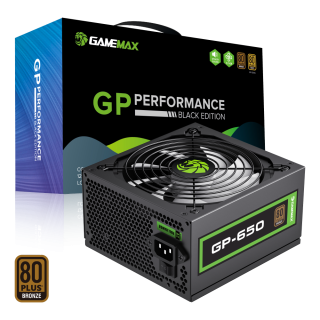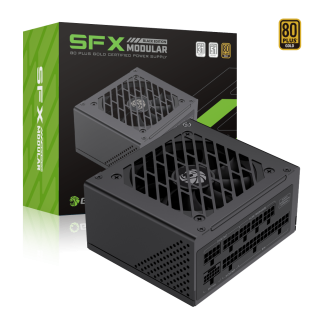In the world of PC building, selecting the right power supply unit (PSU) is crucial for ensuring your system runs smoothly and efficiently. Among the various types of power supplies available, ATX and SFX are two of the most popular form factors. This article explores the definitions, advantages, considerations, and selection criteria for both ATX and SFX power supplies, helping you make an informed decision for your next build.
ATX Power Supply
The ATX (Advanced Technology eXtended) power supply is the most widely used form factor in desktop computers. Its dimensions are typically 150mm x 140mm x 86mm, making it larger than most other types of power supplies. The ATX standard was introduced in the mid-1990s and has since evolved, accommodating the increasing demands of modern computing hardware. ATX power supplies come in a range of wattages, making them suitable for various applications, from budget builds to high-performance gaming rigs.
SFX Power Supply
SFX (Small Form Factor) power supplies are designed specifically for compact PC cases, often utilizing mini-ITX motherboards. The standard dimensions for SFX units are approximately 100mm x 125mm x 63.5mm, which allows them to fit into tighter spaces. SFX power supplies are becoming increasingly popular among gamers and builders looking to create powerful yet compact systems. Many SFX models also offer modular designs, enhancing cable management and airflow within small cases.
Advantages of ATX Power Supplies
Higher Power Output: ATX power supplies typically offer a wider range of wattage options, from 400W to over 1200W. This flexibility allows users to power high-end components, including multiple GPUs, making them ideal for gaming and workstation builds.
Better Cooling Solutions: Due to their larger size, ATX power supplies often feature larger fans and more advanced cooling technologies. This results in improved thermal performance and quieter operation, particularly under heavy loads.
Versatility: ATX power supplies are compatible with a wide variety of cases, allowing users to choose from many designs and layouts. This versatility makes them suitable for nearly any build type, whether it’s a gaming rig or a professional workstation.
Advantages of SFX Power Supplies
Compact Design: The most significant advantage of SFX power supplies is their small footprint. This makes them perfect for compact builds where space is at a premium, such as mini-ITX cases.
Modularity: Many SFX power supplies come in fully modular configurations, allowing users to connect only the cables they need. This reduces cable clutter and improves airflow, which is particularly important in smaller cases.
High Efficiency: SFX units often come with high efficiency ratings, such as 80+ Gold or Platinum, ensuring less energy waste and lower heat generation. This efficiency is crucial for maintaining system stability and longevity.
When deciding between ATX and SFX power supplies, several factors should be considered:
1. System Size and Compatibility
The most crucial factor is the size of your case. If you are building a compact system with a mini-ITX motherboard, an SFX power supply is likely the best choice. However, if you are using a standard ATX case, an ATX power supply will offer better compatibility and power options.
2. Power Requirements
Consider the power needs of your components. High-end gaming setups, especially those with multiple graphics cards, will benefit from the higher wattage options available in ATX power supplies. On the other hand, for smaller builds with lower power requirements, SFX units can provide sufficient power without taking up unnecessary space.
3. Cooling Needs
Evaluate the cooling solutions of your build. If you're working with high-performance components that generate significant heat, an ATX power supply's superior cooling capabilities might be necessary. Conversely, if your components run cooler and you’re building a compact system, a well-designed SFX power supply can provide adequate cooling.
4. Budget
Price is always a consideration when choosing components. While both ATX and SFX power supplies can be found at various price points, ATX units typically offer a wider range of options. If you're on a budget, you may find more affordable ATX models that still meet your power needs.

GameMax GP-650 Elegant PSU casing with white flat cables, Designed for high performance business and gaming build and various compatibility
• Elegant black PSU casing with full black mesh cables
• ATX12V Ver.2.30 compliant with ATX12V Ver.2.31
• High efficiency PSU, up to 85% efficiency
• Extended 12V Rail for high compatibility and extreme high current output
• Longer 20 + 4 500mm and 4 + 4 pins up to 650mm is easy for high-end tower chassis installation
• 14cm silent black fan with smart thermal fan speed control circuit
• Full protection functions with OVP / UVP / OPP / SCP / SIP
• Safety and EMC certified by CE
• ECO friendly by RoHS and Erp 2013 directives

• The GameMax SFX Series Power Supplies offer compact, high-performance solutions designed for small form factor builds, combining efficiency and reliability in one package。
• Exceptional Performance: Certified 80 PLUS efficiency, precise voltage regulation, and smart fan control ensure dependable operation.
• Compact and Powerful: The SFX Modular 650W (2024) measures 125mm x 110mm x 65mm, delivering robust power in a small footprint.
• Optimized Cooling: GameMax hybrid fan control automatically adjusts cooling based on system demands for maximum efficiency.
To help you make an informed choice, follow these steps:
Step 1: Assess Your Build Requirements
Determine the specifications of your components, including the CPU, GPU, and any additional peripherals. Look up the recommended wattage for your setup to ensure you choose a power supply that can adequately support all components.
Step 2: Evaluate Your Case Size
Check the specifications of your PC case to see what type of power supply it supports. If it is designed for mini-ITX or compact builds, an SFX power supply is likely required. For standard ATX cases, you can choose either an ATX or SFX unit, but consider the overall airflow and cable management.
Step 3: Consider Future Upgrades
Think about future upgrades to your system. If you plan to add components later, an ATX power supply may be a better long-term investment due to its higher wattage capabilities and versatility. An SFX power supply may limit your upgrade options in the future.
Step 4: Research Efficiency Ratings
Look for power supplies that have 80+ certifications, as these indicate higher efficiency levels. A more efficient power supply will save you money on electricity bills over time and contribute to better thermal management within your case.
Step 5: Read Reviews and Compare Brands
Once you have narrowed down your options, read user reviews and expert opinions on specific models. Some brands are known for reliability and performance, so consider well-reviewed units from reputable manufacturers.
Choosing between an ATX and an SFX power supply ultimately depends on your specific needs, system size, and performance requirements. ATX power supplies are well-suited for high-performance builds with greater power demands, while SFX power supplies excel in compact setups where space is limited.
By assessing your build requirements, evaluating the size of your case, and considering your future upgrade plans, you can make an informed decision that will ensure your system runs efficiently and reliably. Whether you opt for an ATX or SFX power supply, both have their unique advantages that can cater to a variety of user needs. With the right power supply, you can maximize your PC's potential and enjoy a smooth computing experience.